Free People Read Freely™ — Speaker Biographies
™ Used with permission from the American Library Association
Timothy L. Killeen
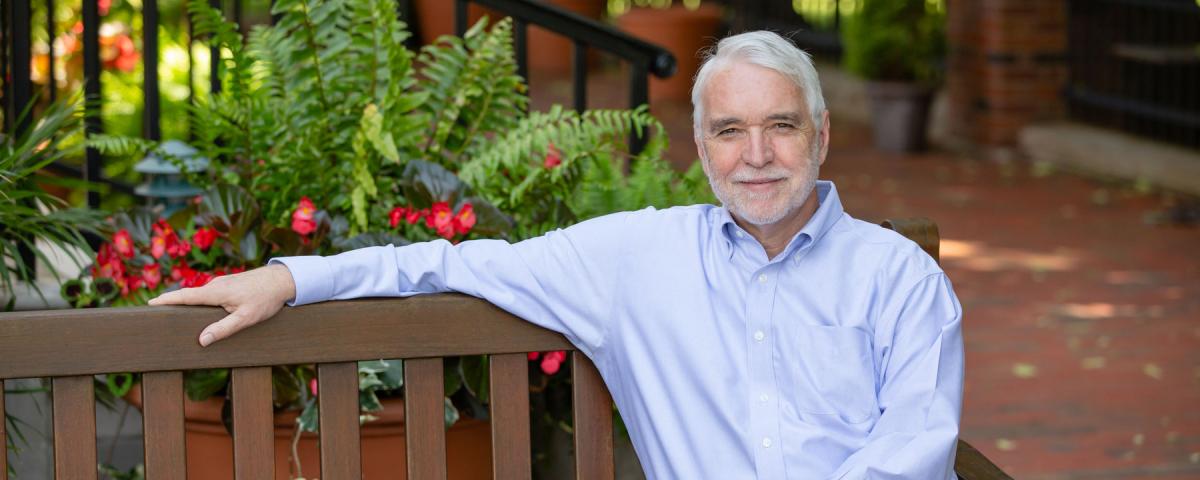 Timothy L. Killeen is the twentieth president of the University of Illinois System, which includes universities in Urbana-Champaign, Chicago, and Springfield. Since taking office in May 2015, Killeen has helped lead a surge of growth across the state’s flagship university system. Enrollment is at record highs, including increases among in-state and underrepresented students.
Timothy L. Killeen is the twentieth president of the University of Illinois System, which includes universities in Urbana-Champaign, Chicago, and Springfield. Since taking office in May 2015, Killeen has helped lead a surge of growth across the state’s flagship university system. Enrollment is at record highs, including increases among in-state and underrepresented students.
A leading researcher in geophysics and space sciences, Killeen champions efforts to expand research discovery that drives progress and job creation. That includes helping lead the creation of the Discovery Partners Institute, a world-class research, technology, and talent development and business-building center in downtown Chicago, and Illinois Innovation Network, a system of satellite hubs that combines research, public-private partnerships, entrepreneurship, and workforce training to spur inclusive economic development across the state.
Killeen was elected to the National Academy of Engineering in 2007 and is a member and past president of the American Geophysical Union. A native of Wales and a U.S. citizen, Killeen received his bachelor’s degree in physics and astronomy at University College London, where he also earned his doctoral degree in atomic and molecular physics.
Clint Smith
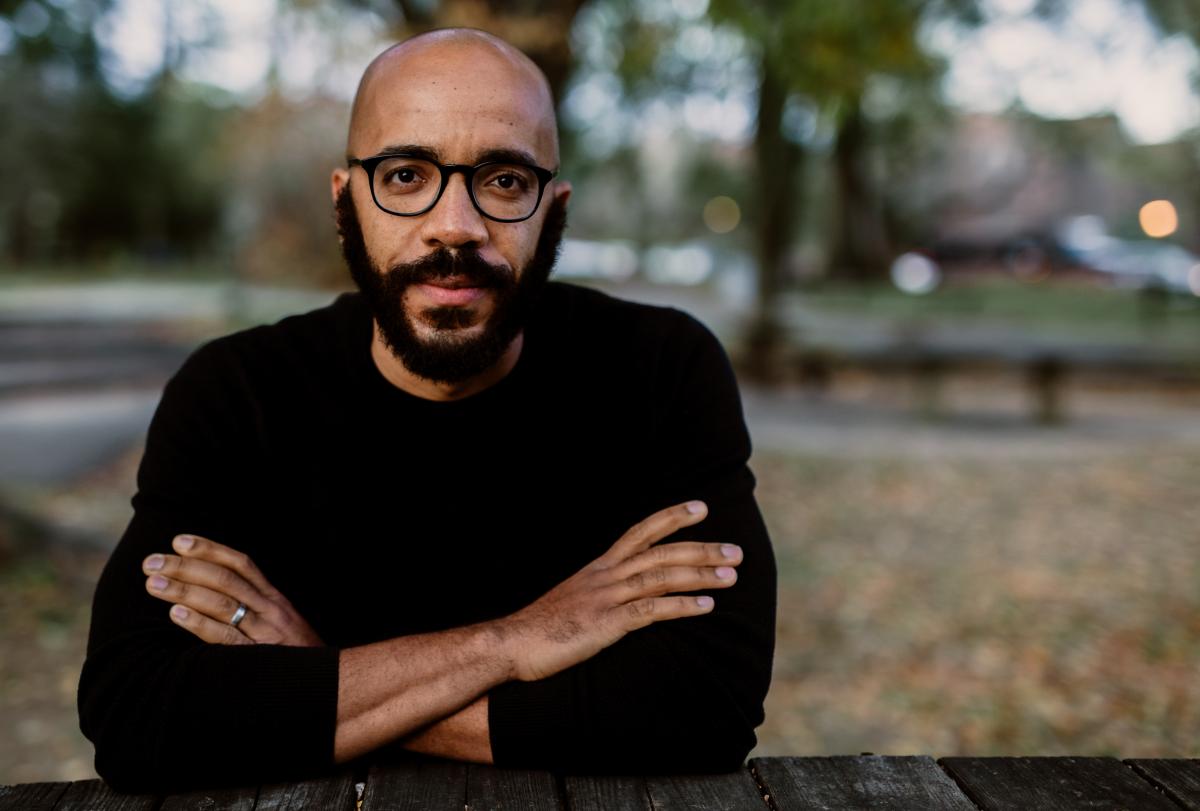 Clint Smith is the #1 New York Times bestselling author of How the Word Is Passed: A Reckoning with the History of Slavery Across America, winner of the National Book Critics Circle Award for Nonfiction, the Hillman Prize for Book Journalism, the Stowe Prize, the Dayton Literary Peace Prize, and selected by the New York Times as one of the 10 Best Books of 2021. He is also the author of two books of poetry, the New York Times bestselling collection Above Ground as well as Counting Descent. Both poetry collections were winners of the Literary Award for Best Poetry Book from the Black Caucus of the American Library Association, and both were finalists for NAACP Image Awards. He is a staff writer at The Atlantic.
Clint Smith is the #1 New York Times bestselling author of How the Word Is Passed: A Reckoning with the History of Slavery Across America, winner of the National Book Critics Circle Award for Nonfiction, the Hillman Prize for Book Journalism, the Stowe Prize, the Dayton Literary Peace Prize, and selected by the New York Times as one of the 10 Best Books of 2021. He is also the author of two books of poetry, the New York Times bestselling collection Above Ground as well as Counting Descent. Both poetry collections were winners of the Literary Award for Best Poetry Book from the Black Caucus of the American Library Association, and both were finalists for NAACP Image Awards. He is a staff writer at The Atlantic.
Clint has received fellowships from the Andrew W. Mellon Foundation, New America, the Emerson Collective, the Art for Justice Fund, Cave Canem, and the National Science Foundation. His essays, poems, and scholarly writing have been published in The New Yorker, The New York Times Magazine, The New Republic, Poetry Magazine, The Paris Review, the Harvard Educational Review, and elsewhere. He is a former National Poetry Slam champion and a recipient of the Jerome J. Shestack Prize from the American Poetry Review.
Previously, Clint taught high school English in Prince George’s County, Maryland where he was named the Christine D. Sarbanes Teacher of the Year by the Maryland Humanities Council. He is the host of the YouTube series Crash Course Black American History.
Clint received his B.A. in English from Davidson College and his Ph.D. in Education from Harvard University. Born and raised in New Orleans, he currently lives in Maryland with his wife and their two children.
George M. Johnson
 George M. Johnson is an award-winning Black non-binary author and activist whose body of work on diversity and queer identity inspires readers across the world to “be themselves unapologetically.” Johnson is the author of two memoirs: the New York Times Bestselling Young Adult Memoir All Boys Aren’t Blue, which was a Teen Vogue Recommended Read, a Buzzfeed Recommended Read, a People Magazine Best Book of the Summer, a New York Library Best Book, and a Chicago Public Library Best Book; and We Are Not Broken, recipient of the Carter G. Woodson Award which recognizes books that “accurately and sensitively depict the experience of one or more historically marginalized racial/ethnic groups in the United States”. The book also received the Nonfiction Honor Book in the YA category from the International Literacy Association. Their forthcoming book, Flamboyants, celebrates the writers, performers, and activists from 1920s Black America whose sexualities have been obscured throughout history.
George M. Johnson is an award-winning Black non-binary author and activist whose body of work on diversity and queer identity inspires readers across the world to “be themselves unapologetically.” Johnson is the author of two memoirs: the New York Times Bestselling Young Adult Memoir All Boys Aren’t Blue, which was a Teen Vogue Recommended Read, a Buzzfeed Recommended Read, a People Magazine Best Book of the Summer, a New York Library Best Book, and a Chicago Public Library Best Book; and We Are Not Broken, recipient of the Carter G. Woodson Award which recognizes books that “accurately and sensitively depict the experience of one or more historically marginalized racial/ethnic groups in the United States”. The book also received the Nonfiction Honor Book in the YA category from the International Literacy Association. Their forthcoming book, Flamboyants, celebrates the writers, performers, and activists from 1920s Black America whose sexualities have been obscured throughout history.
George was listed on The Root 100 Most Influential African Americans in 2020. The Out 100 Most Influential LGBTQ People in 2021. And in 2022 was honored as one of the TIME100 Next Most Influential People in the World.
As a former journalist, George has written for major outlets including Teen Vogue, Entertainment Tonight, NBC, and Buzzfeed. In 2019 was awarded the Salute to Excellence Award by the National Association of Black Journalists for their article “When Racism Anchors your Health” in Vice Magazine.
George is an HIV activist, serving as Chair of the Black Leadership AIDS Crisis Coalition for Black Gay Men for AIDS Healthcare Foundation, a National Advisor for ViiV pharmaceutical, and Gilead Speaker. George is also a proud HBCU alum twice over and a member of Alpha Phi Alpha Fraternity Incorporated.
Ruby Mendenhall
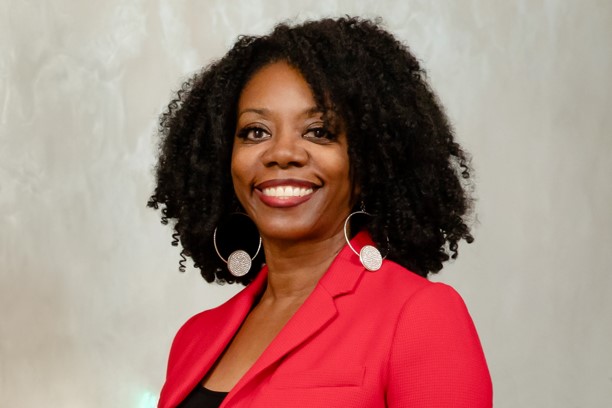 Ruby Mendenhall holds the Kathryn Lee Baynes Dallenbach Professorship in Liberal Arts and Sciences at the University of Illinois at Urbana-Champaign. She is a professor of urban & regional planning, sociology, and African American studies, and Associate Dean for Diversity and Democratization of Health Innovation at Carle Illinois College of Medicine. In April, 2024, Mendenhall was appointed Urbana's poet laureate. She holds a B.S. In Occupational Therapy from the University of Illinois at Chicago, M.P.P. In public policy from the University of Chicago, and PhD in human development and social policy from Northwestern University.
Ruby Mendenhall holds the Kathryn Lee Baynes Dallenbach Professorship in Liberal Arts and Sciences at the University of Illinois at Urbana-Champaign. She is a professor of urban & regional planning, sociology, and African American studies, and Associate Dean for Diversity and Democratization of Health Innovation at Carle Illinois College of Medicine. In April, 2024, Mendenhall was appointed Urbana's poet laureate. She holds a B.S. In Occupational Therapy from the University of Illinois at Chicago, M.P.P. In public policy from the University of Chicago, and PhD in human development and social policy from Northwestern University.
Tamara Bhalla
 Tamara Bhalla is Associate Professor and chair of the American Studies department at the University of Maryland Baltimore County where she teaches courses in Asian American studies and post-1965 U.S. multiethnic literatures. Her book Reading Together, Reading Apart: Identity, Belonging, and South Asian American Community was published in 2016 by University of Illinois Press. She has published in venues such Reception: Texts, Readers, Audiences, History, Journal for Asian American Studies, MELUS: Multiethnic Literature of the United States, Scholar and Feminist Online and the Oxford Research Encyclopedia of Asian American Literature and Culture. She is currently working on a book manuscript called Decentering Whiteness: Race and Reading in Contemporary US Literature which exposes how 21st century US-based reading and readership serve the needs and desires of white readers as they seek empathic identification with marginalized others.
Tamara Bhalla is Associate Professor and chair of the American Studies department at the University of Maryland Baltimore County where she teaches courses in Asian American studies and post-1965 U.S. multiethnic literatures. Her book Reading Together, Reading Apart: Identity, Belonging, and South Asian American Community was published in 2016 by University of Illinois Press. She has published in venues such Reception: Texts, Readers, Audiences, History, Journal for Asian American Studies, MELUS: Multiethnic Literature of the United States, Scholar and Feminist Online and the Oxford Research Encyclopedia of Asian American Literature and Culture. She is currently working on a book manuscript called Decentering Whiteness: Race and Reading in Contemporary US Literature which exposes how 21st century US-based reading and readership serve the needs and desires of white readers as they seek empathic identification with marginalized others.
The #ReadWithJenna Book Club and the Politics of Race, Empathy, and Motherhood
This presentation draws from a book manuscript in progress called Decentering Whiteness: Race and Reading in Contemporary US Literature. The manuscript exposes how twenty-first-century US-based reading and readership serve the needs and desires of white readers as they seek empathic identification with marginalized others. While the field of contemporary US literary fiction has become diversified along multiple axes of representation, several key aspects of US-based literary culture and popular reading are still aligned with the preferences of white readers and an imagined white reading public. This presents a problem for recent efforts in the publishing industry and literary marketplace to truly diversify contemporary literary culture. Decentering Whiteness argues that we have to invest in the agency of everyday readers as a key site by which to diversify literary culture. The manuscript examines several public sites through which contemporary literature is mediated, such as celebrity book clubs, social media platforms, and political pressure groups.
This presentation examines the influence of celebrity book clubs in contemporary reading culture in the US. Bhalla argues that Jenna Bush Hager’s recently launched and yet highly influential book club, #ReadWithJenna, is emblematic of celebrity book club culture in the twenty-first century as a phenomenon largely dominated by white women as both reader-participants and the celebrity tastemakers themselves. Increasingly, celebrity book clubs actively shape popular literary culture, determining which works of literary fiction are popularized, promoted, and sold. The #ReadWithJenna book club serves as a case study to understand how contemporary book clubs tend to be organized around exigencies for white women’s self-improvement and education through interrelated discourses of empathy and motherhood. By studying the televisual, online, and social media platforms and productions of the #ReadWithJenna book club, this presentation reveals the limitations and possibilities of celebrity book clubs as sites of political and social expression.
Esmeralda Arrizón-Palomera
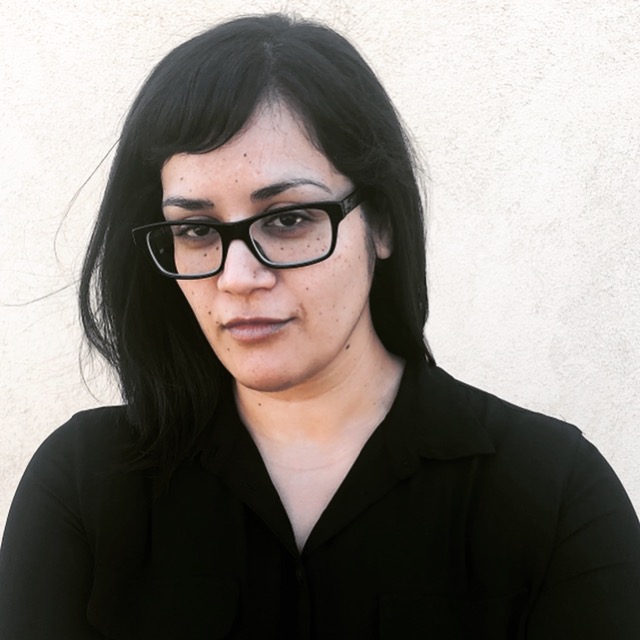 Esmeralda Arrizón-Palomera is Assistant Professor of English at University of Illinois, Chicago. She completed her undergraduate studies at Loyola Marymount University in 2009 and earned her Ph.D. in English Language and Literature at Cornell University in 2020. She specializes in U.S. Latinx and African American Literature and culture with a focus on race, gender, and migration. Her current book project, titled The Turn to the Undocumented in Feminist Thought, studies the work the undocumented immigrant has enabled in feminist history, theory, and literature in the twentieth century. She has taught courses in Latinx and African American literature and culture, feminist thought, and social movements at Cornell University, California State University, Los Angeles, Boston University, and the University of Pennsylvania, and her work has been published in Aztlán: A Journal of Chicano Studies, Latino Studies, MELUS, American Quarterly, and Dreamers Adrift.
Esmeralda Arrizón-Palomera is Assistant Professor of English at University of Illinois, Chicago. She completed her undergraduate studies at Loyola Marymount University in 2009 and earned her Ph.D. in English Language and Literature at Cornell University in 2020. She specializes in U.S. Latinx and African American Literature and culture with a focus on race, gender, and migration. Her current book project, titled The Turn to the Undocumented in Feminist Thought, studies the work the undocumented immigrant has enabled in feminist history, theory, and literature in the twentieth century. She has taught courses in Latinx and African American literature and culture, feminist thought, and social movements at Cornell University, California State University, Los Angeles, Boston University, and the University of Pennsylvania, and her work has been published in Aztlán: A Journal of Chicano Studies, Latino Studies, MELUS, American Quarterly, and Dreamers Adrift.
“Re-reading undocu literature “
Undocumented youth began to write and share their narratives in the mid-2000s. These writings constitute the early works of undocu literature and have taken various forms such as speeches, testimonies, personal essays, profiles, interviews, letters, manifestos, and poetry. These early writings are political, autobiographical, and tend to include a disclosure of immigration status. Social scientists have written extensively about the ways in which undocumented youth’s “coming out of the shadows” transformed the immigrant rights movement and the immigrant rights debate. Less has been written about the literary and aesthetic dimensions of their early “coming out of the shadows” writings. This paper is concerned with the literary and aesthetic dimensions of a body of work that is too often read as protest, as an expression of identity, and qualitative data for sociological studies about undocumented students, and proposes that we reread these early narratives as works of literature. Arrizón-Palomera examines Underground Undergrads: UCLA Undocumented Immigrant Students Speak Out (2008), the first book-length publication by and about undocumented students, and discusses the works of undocu writers, undocumented and formerly undocumented, included in this collection in order to identify and examine early undocu literature’s concerns relating to form and language.
Laurie Matheson
 Since arriving at the University of Illinois Press in 1996, Laurie Matheson has served in various roles including editor-in-chief, acquisitions editor for history and music, marketing copywriter, awards manager, development associate, and, since 2015, director. Earlier in her publishing career she was an editorial assistant to two fiction editors at Charles Scribner’s Sons in New York. She is the compiler of a two-volume set of anthologies entitled Music in Black American Life, published in 2022 to celebrate the 50th anniversary of the UI Press series Music in American Life. An accomplished choral director, singer, composer, and keyboardist, she holds a BA with high honors in English from Swarthmore College, a Master of Music in choral conducting from Westminster Choir College, and a Doctor of Musical Arts degree in choral music from the University of Illinois.
Since arriving at the University of Illinois Press in 1996, Laurie Matheson has served in various roles including editor-in-chief, acquisitions editor for history and music, marketing copywriter, awards manager, development associate, and, since 2015, director. Earlier in her publishing career she was an editorial assistant to two fiction editors at Charles Scribner’s Sons in New York. She is the compiler of a two-volume set of anthologies entitled Music in Black American Life, published in 2022 to celebrate the 50th anniversary of the UI Press series Music in American Life. An accomplished choral director, singer, composer, and keyboardist, she holds a BA with high honors in English from Swarthmore College, a Master of Music in choral conducting from Westminster Choir College, and a Doctor of Musical Arts degree in choral music from the University of Illinois.
Rebecca Ginsburg
Rebecca Ginsburg is the director of the Education Justice Project at the University of Illinois Urbana-Champaign, where she is also an associate professor in the Department of Educational Policy, Organization and Leadership and in the Department of Landscape Architecture. Her books include Slavery in the City: Architecture and Landscapes of Urban Slavery in North America (University of Virginia Press) and, as editor, Critical Perspectives on Teaching in Prison: Students and Instructors on Pedagogy Behind the Wall (Routledge). She holds a BA in English from Loyola Marymount University (CA), a JD from the University of Michigan, and a PhD in Architectural History from the University of California at Berkeley.
Nicholas Jones
 Nicholas Jones is the Executive Vice President and Vice President for Academic Affairs of the University of Illinois System and serves as the second most senior executive and the chief academic officer, reporting to the president, for the $7.8 billion U of I System. Dr. Jones works closely with the chancellors and provosts of the Urbana- Champaign, Chicago, and Springfield universities in defining and shaping academic priorities and directions for the system, providing advice on important academic policy and budgetary issues, and spearheading system-wide academic initiatives. In addition, he works closely with the president to advocate for the U of I System across the state and the nation by building connections with legislators, funding agencies, and leaders in higher education and industry.
Nicholas Jones is the Executive Vice President and Vice President for Academic Affairs of the University of Illinois System and serves as the second most senior executive and the chief academic officer, reporting to the president, for the $7.8 billion U of I System. Dr. Jones works closely with the chancellors and provosts of the Urbana- Champaign, Chicago, and Springfield universities in defining and shaping academic priorities and directions for the system, providing advice on important academic policy and budgetary issues, and spearheading system-wide academic initiatives. In addition, he works closely with the president to advocate for the U of I System across the state and the nation by building connections with legislators, funding agencies, and leaders in higher education and industry.
He holds an M.S. and Ph.D. in Civil Engineering from the California Institute of Technology and previously earned his undergraduate degree in Civil Engineering from the University of Auckland in New Zealand.
Tony Diaz
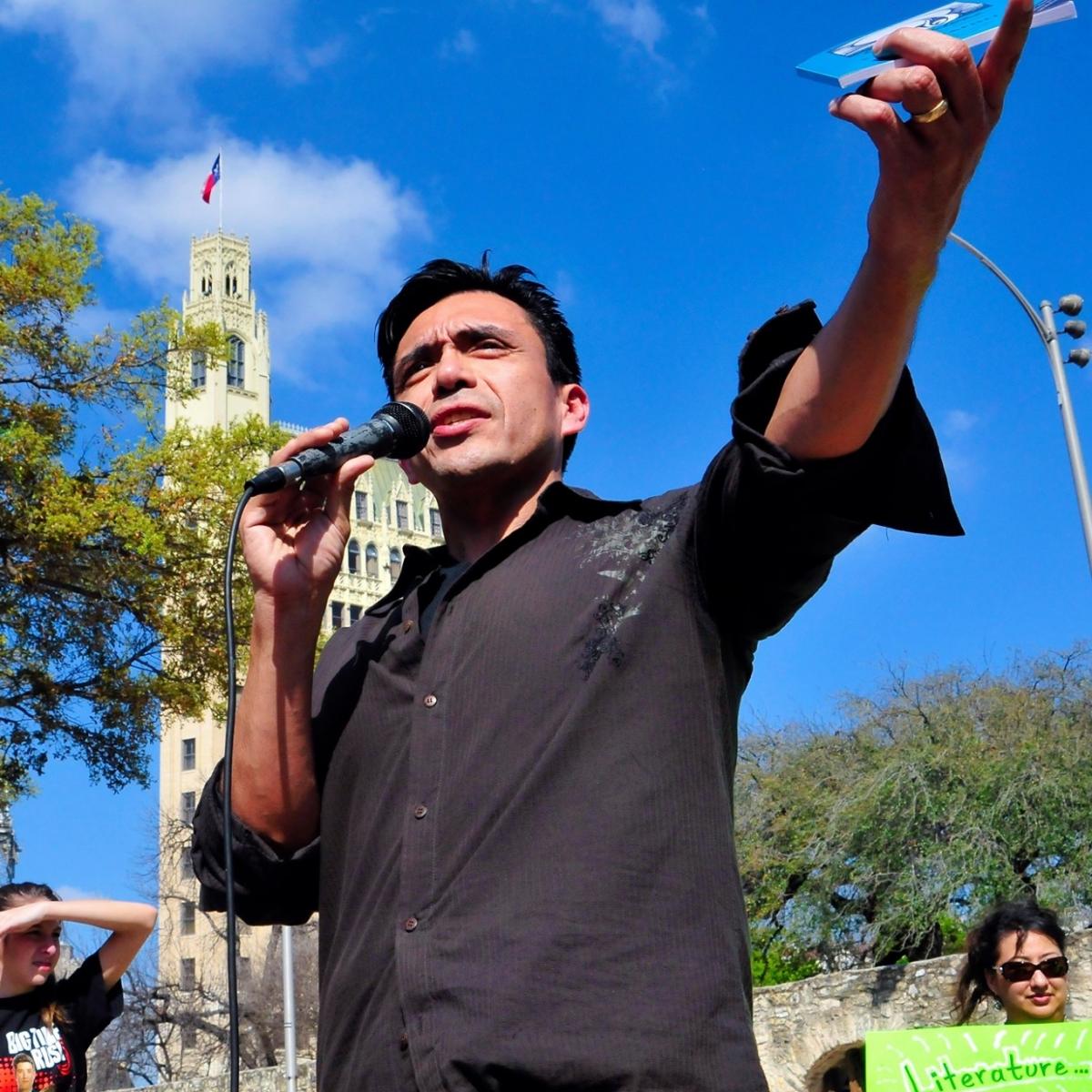 Writer and activist Tony Diaz, El Librotraficante, is a Cultural Accelerator. He was the first Chicano to earn a Master of Fine Arts degree from the University of Houston Creative Writing Program.
Writer and activist Tony Diaz, El Librotraficante, is a Cultural Accelerator. He was the first Chicano to earn a Master of Fine Arts degree from the University of Houston Creative Writing Program.
In 1998, Diaz founded Nuestra Palabra: Latino Writers Having Their Say (NP), Houston’s first reading series for Latino authors. The group galvanized Houston’s Community Cultural Capital to become a movement for civil rights, education, and representation. Under Diaz’s leadership, Nuestra Palabra organized the Latino Book and Family Festival from 2002-2007 -the largest book fair in Houston and one of the largest in Texas, drawing up to 30,000 people to the GRB Convention Center. When Arizona officials banned Mexican American Studies, Diaz and 4 veteran members of NP organized the 2012 Librotraficante Caravan to smuggle books from the banned curriculum back into Arizona. The Librotraficantes returned to Texas and fueled the state's campaign for Mexican American Studies, which led to the TX SBOE unanimously endorsing MAS statewide.
Diaz is a political analyst on Fox 26 Houston and hosts Latino Politics And News and the Nuestra Palabra Radio Show on 90. 1 FM, KPFT, Houston. He is the author of The Aztec Love God and editor of The Mexican American Studies Tool Kit. His new book, The Tip of the Pyramid: Cultivating Community Cultural Capital, is the first in his series on Community Organizing.
Diaz is currently working to empower Community Cultural Capital through innovative collaborations. He is a member of Houston’s Mayor’s Hispanic Advisory Board and chairs the group’s Arts Committee. He is the Literary Curator of the Guadalupe Cultural Arts Center’s Latino Bookstore in San Antonio, Texas; board member of the BIPOC Arts Network Fund (BANF), which is awarding $12.5 million to BIPOC community arts groups in Houston on Community Arts Terms, and he is a board member of Advocates of a Latino Museum of Cultural and Visual Arts & Archive Complex in Houston, Harris County-ALMAAHH. Diaz wrote the grant for the organization’s first $1 mm award from Houston Endowment, Inc.
Rebecca Amato
 Rebecca Amato is Director of Teaching and Learning at Illinois Humanities where she is responsible for bringing a pedagogical framework and high quality, humanities-reflective practices to the organization's education and other programs. Prior to this, she was the Associate Director of the Urban Democracy Lab and Associate Faculty at the Gallatin School of Individualized Study at NYU. Her research and writing focus on the intersections between cities, space, place, and memory, with a special focus on mobilizing the public humanities for social justice advocacy. Her work has appeared in Radical History Review, Radical Roots: Civic Engagement, Public History, and a Tradition of Social Justice Activism, ed. Denise Meringolo, and A People’s Guide to New York City, eds. Carolina Bank Muñoz, Penny Lewis, and Emily Molina, as well as exhibits throughout New York. She has been a staff member and consultant at a variety of history museums and currently serves on the board of the Chicago Cultural Alliance. She holds a PhD in United States History from The Graduate Center of the City University of New York.
Rebecca Amato is Director of Teaching and Learning at Illinois Humanities where she is responsible for bringing a pedagogical framework and high quality, humanities-reflective practices to the organization's education and other programs. Prior to this, she was the Associate Director of the Urban Democracy Lab and Associate Faculty at the Gallatin School of Individualized Study at NYU. Her research and writing focus on the intersections between cities, space, place, and memory, with a special focus on mobilizing the public humanities for social justice advocacy. Her work has appeared in Radical History Review, Radical Roots: Civic Engagement, Public History, and a Tradition of Social Justice Activism, ed. Denise Meringolo, and A People’s Guide to New York City, eds. Carolina Bank Muñoz, Penny Lewis, and Emily Molina, as well as exhibits throughout New York. She has been a staff member and consultant at a variety of history museums and currently serves on the board of the Chicago Cultural Alliance. She holds a PhD in United States History from The Graduate Center of the City University of New York.
Augustus Wood
Augustus Wood is an assistant professor in the School of Labor & Employment Relations at the University of Illinois Urbana-Champaign who teaches history to degree-seeking adults in the Odyssey project at UIUC. Augustus is a scholar of African American History of the Urban South with an interdisciplinary focus on political economy, intra-racial class struggle, working class social movements, and gentrification in modern urban regions. He also centralizes the role of labor struggles in anti-Black working-class racial oppression and the development of internal neo-colonialism. His first book, Class Warfare in Black Atlanta: African American Grassroots Struggles, Resistance, and Repression under Gentrification, 1966-2015, is forthcoming from the University of North Carolina Press. He earned a BA in history from Morehouse College, and MA in history from Clark Atlanta University, and a PhD in history from the University of Illinois Urbana-Champaign.
Antoinette Burton
Antoinette Burton is Maybelle Leland Swanlund Professor of History at the University of Illinois, Urbana Champaign, where she directs the Humanities Research Institute. A feminist historian of British imperialism, she is a champion of the humanities as a social practice and the PI for the $12million award from the Mellon Foundation, Humanities Without Walls. HWW is one of several publicly engaged initiatives she oversees at HRI, including the Odyssey Project. Antoinette is chair of the faculty Board at the University of Illinois Press, and a board member at Illinois Humanities. She is also a fellow at the Op Ed Project, in conjunction with the University of Illinois System.
Emily Knox
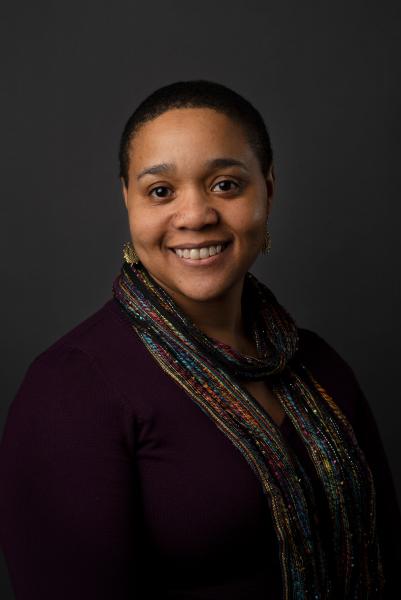 Emily (she/her) is a professor in the School of Information Sciences at the University of Illinois at Urbana-Champaign.
Emily (she/her) is a professor in the School of Information Sciences at the University of Illinois at Urbana-Champaign.
Her book, Book Banning in 21st Century America (Rowman & Littlefield), is the first monograph in the Beta Phi Mu Scholars’ Series. Her most recent book Foundations of Intellectual Freedom (ALA Neal-Schuman) won the 2023 Eli M. Oboler Prize for best published work in the area of intellectual freedom. Emily’s articles have been published in the Library Quarterly, Library and Information Science Research, and Open Information Science.
Emily serves on the board of National Coalition Against Censorship and is the editor of the Journal of Intellectual Freedom and Privacy.
Her research interests include information access, intellectual freedom and censorship, information ethics and policy, and the intersection of print culture and reading practices. She is also a member of the Mapping Information Access research team.
She has been interviewed by media outlets such as NPR, the New York Times, the Washington Post, Time, and Slate. She also testified before the U.S. Senate Judiciary Committee on book banning.
Emily received her Ph.D. from the doctoral program at the Rutgers University School of Communication & Information. Her master’s in library and information science is from the iSchool at Illinois. She also holds a B.A. in Religious Studies from Smith College and an A.M. in the same field from The University of Chicago Divinity School.
Barbara Jones
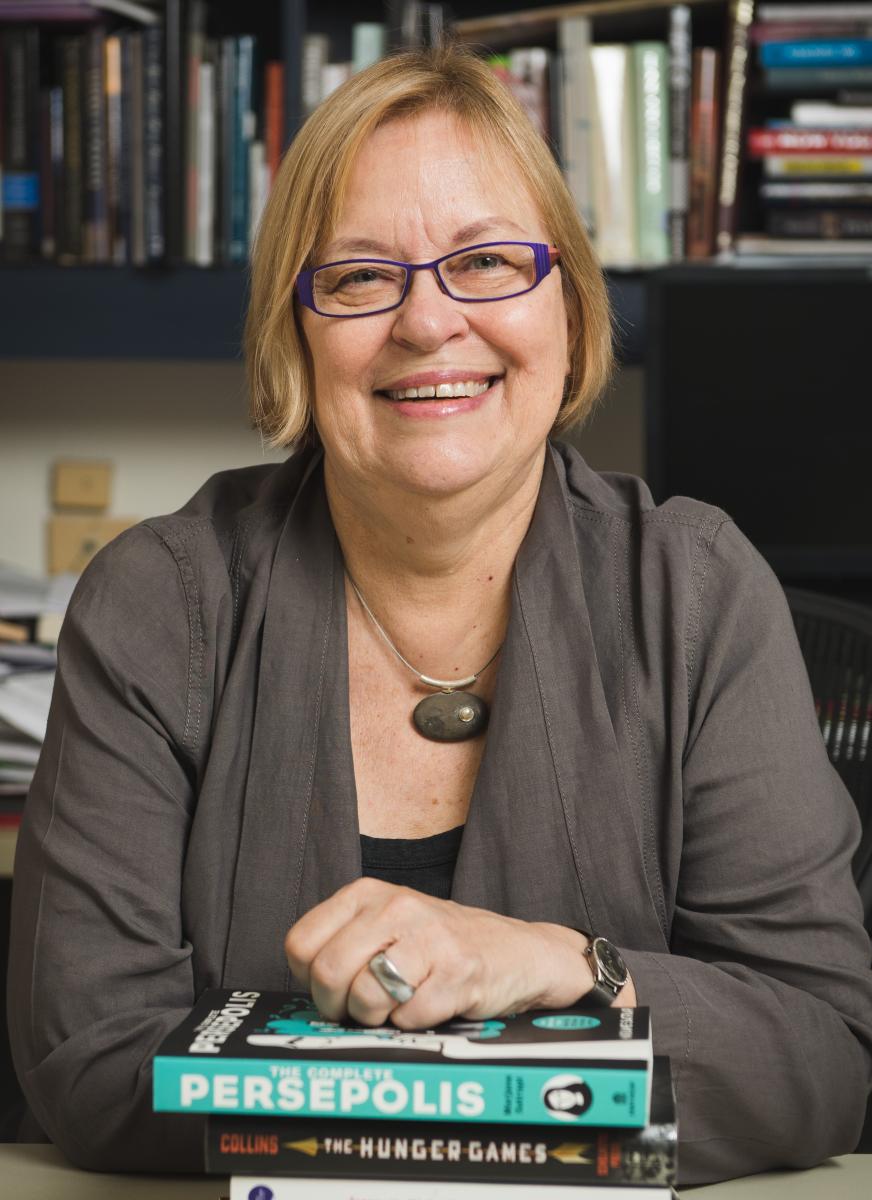 Barbara Jones has spent 50 years fighting book banning and promoting free access to information. She was an academic library director for most of her career. Her most recent position was director of the Office for Intellectual Freedom and executive director of the Freedom to Read Foundation at American Library Association in Chicago, from 2009 to 2016. She is retired and teaches courses at OLLI/UIUC on censorship and the culture wars. She holds her Masters in Library Service from Columbia University in New York City, her certificate in Archival Management from New York University, and her Ph.D. in U.S. History from the University of Minnesota/Twin Cities. She is the author of two books and numerous other publications. She spent more than five years doing overseas workshops on Freedom of Expression in Africa, Asia, Europe, South America, and the U.S.
Barbara Jones has spent 50 years fighting book banning and promoting free access to information. She was an academic library director for most of her career. Her most recent position was director of the Office for Intellectual Freedom and executive director of the Freedom to Read Foundation at American Library Association in Chicago, from 2009 to 2016. She is retired and teaches courses at OLLI/UIUC on censorship and the culture wars. She holds her Masters in Library Service from Columbia University in New York City, her certificate in Archival Management from New York University, and her Ph.D. in U.S. History from the University of Minnesota/Twin Cities. She is the author of two books and numerous other publications. She spent more than five years doing overseas workshops on Freedom of Expression in Africa, Asia, Europe, South America, and the U.S.
Joyce McIntosh
 Joyce McIntosh is the Assistant Program Director for the Freedom to Read Foundation, an organization dedicated to First Amendment education, litigation, and advocacy. She has worked at the intersection of intellectual freedom, communication, and the First Amendment for three decades. Her degrees in journalism (Michigan State University) and library and information science (Wayne State University) have led her to work for newspapers, non-profits, and for the last two decades in libraries. She worked at a public library in reference, outreach, assistive technology, and programming before working with the Foundation.
Joyce McIntosh is the Assistant Program Director for the Freedom to Read Foundation, an organization dedicated to First Amendment education, litigation, and advocacy. She has worked at the intersection of intellectual freedom, communication, and the First Amendment for three decades. Her degrees in journalism (Michigan State University) and library and information science (Wayne State University) have led her to work for newspapers, non-profits, and for the last two decades in libraries. She worked at a public library in reference, outreach, assistive technology, and programming before working with the Foundation.
Lisa Hinchliffe
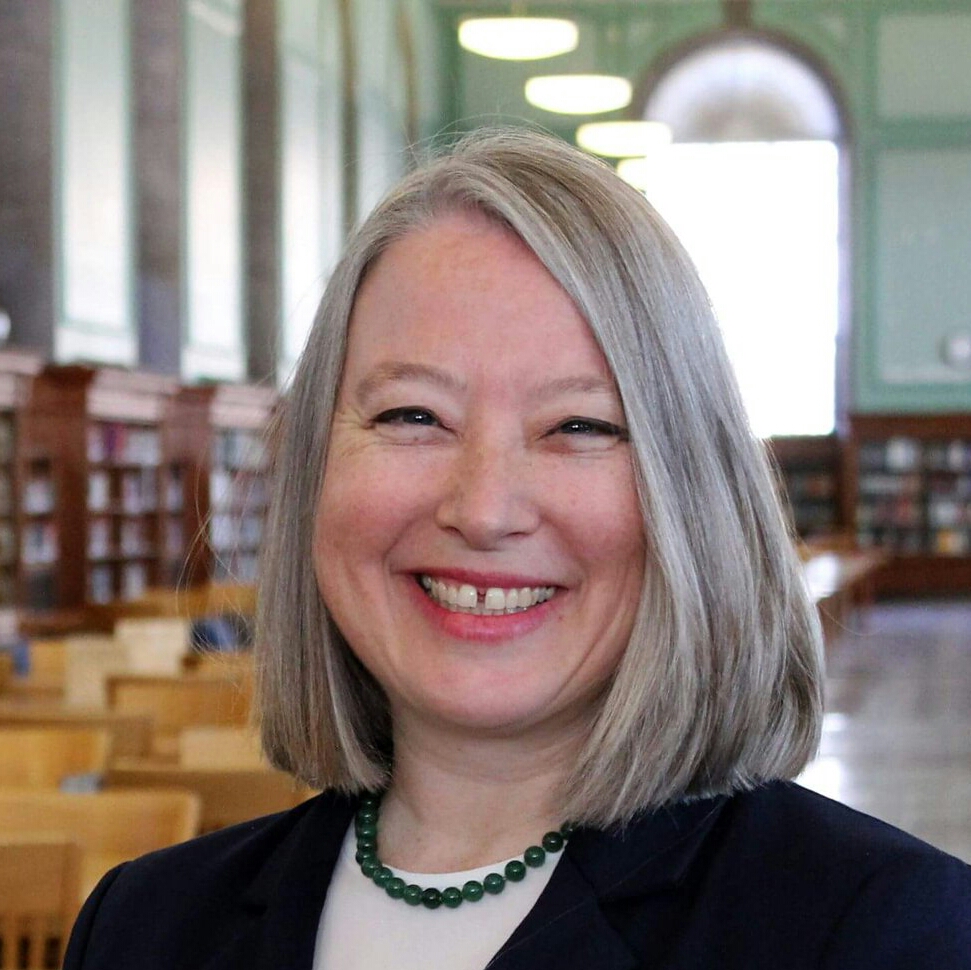 Lisa Hinchliffe is Professor/Coordinator for Research Professional Development in the University Library at the University of Illinois at Urbana-Champaign. She is also an affiliate faculty member in the University’s School of Information Sciences, European Union Center, and Center for Global Studies.
Lisa Hinchliffe is Professor/Coordinator for Research Professional Development in the University Library at the University of Illinois at Urbana-Champaign. She is also an affiliate faculty member in the University’s School of Information Sciences, European Union Center, and Center for Global Studies.
Lisa was the 2010-2011 President of the Association of College and Research Libraries, served as co-Secretary General of the UNESCO Media and Information Literacy Alliance, is currently the Chair of the ORCID Board, and writes for “The Scholarly Kitchen.” She is a leading voice and researcher on privacy in libraries. For more info: https://lisahinchliffe.com.
Anne Craig
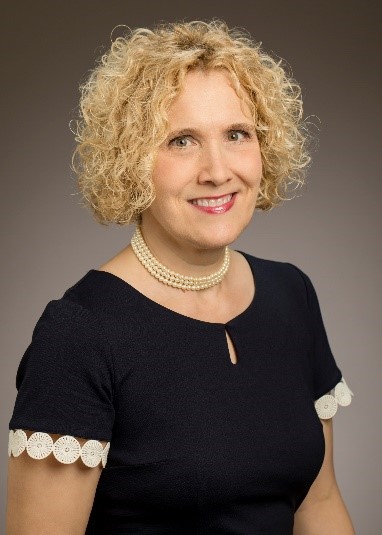 Since July of 2016, Anne Craig has had the privilege of serving as the Senior Director at CARLI, the Consortium of Academic and Research Libraries in Illinois, a unit of the University of Illinois System. CARLI includes 127 academic and research libraries as its members, ranging in size and scope from the University of Illinois at Urbana-Champaign to small, one-person libraries, and research libraries like the Newberry. In September 2021, CARLI was awarded the three-year Open Textbooks Pilot Grant from the US Department of Education for $2 million for the project, “Illinois SCOERs: Support for the Creation of Open Educational Resources.” Anne has started several consortium-wide projects, including the Institute of Museum and Library Services grant, “CARLI Counts: Analytics and Advocacy for Service Development,” strategic planning, and a philanthropy program. Prior to July 2016, Anne was the Director of the Illinois State Library for 11 years under Secretary of State Jesse White. She held various roles at the ISL since starting there as a Reference Librarian in 1989.
Since July of 2016, Anne Craig has had the privilege of serving as the Senior Director at CARLI, the Consortium of Academic and Research Libraries in Illinois, a unit of the University of Illinois System. CARLI includes 127 academic and research libraries as its members, ranging in size and scope from the University of Illinois at Urbana-Champaign to small, one-person libraries, and research libraries like the Newberry. In September 2021, CARLI was awarded the three-year Open Textbooks Pilot Grant from the US Department of Education for $2 million for the project, “Illinois SCOERs: Support for the Creation of Open Educational Resources.” Anne has started several consortium-wide projects, including the Institute of Museum and Library Services grant, “CARLI Counts: Analytics and Advocacy for Service Development,” strategic planning, and a philanthropy program. Prior to July 2016, Anne was the Director of the Illinois State Library for 11 years under Secretary of State Jesse White. She held various roles at the ISL since starting there as a Reference Librarian in 1989.
Kate McDowell
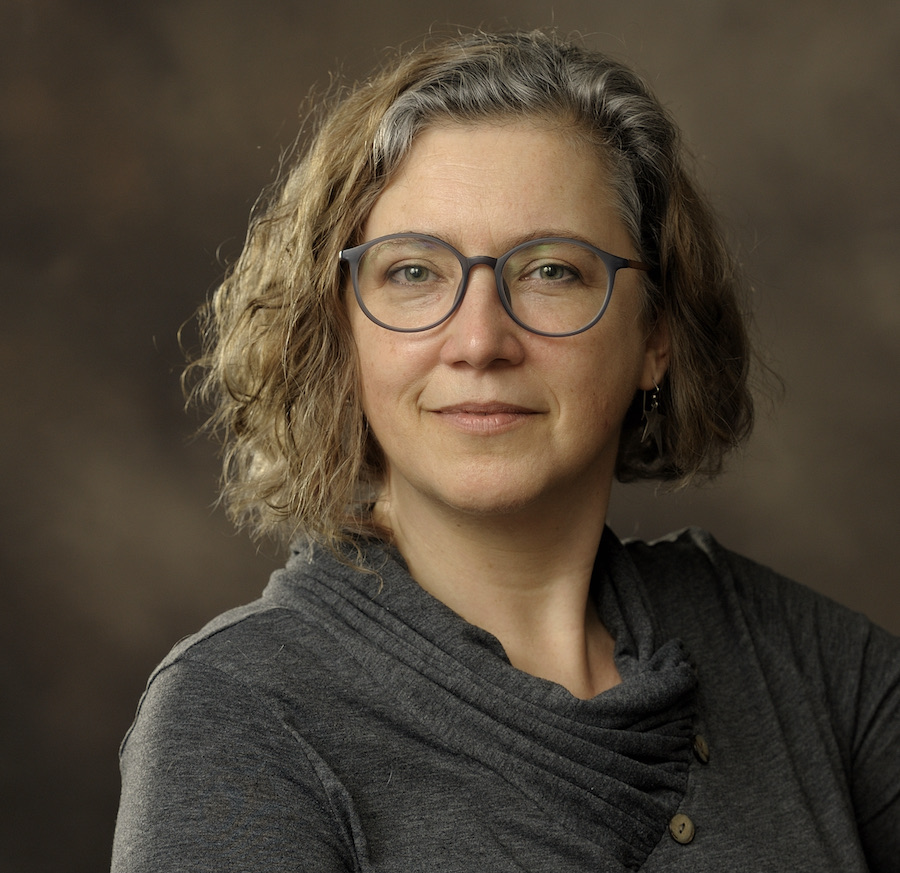
Secretary of State Alexi Giannoulias
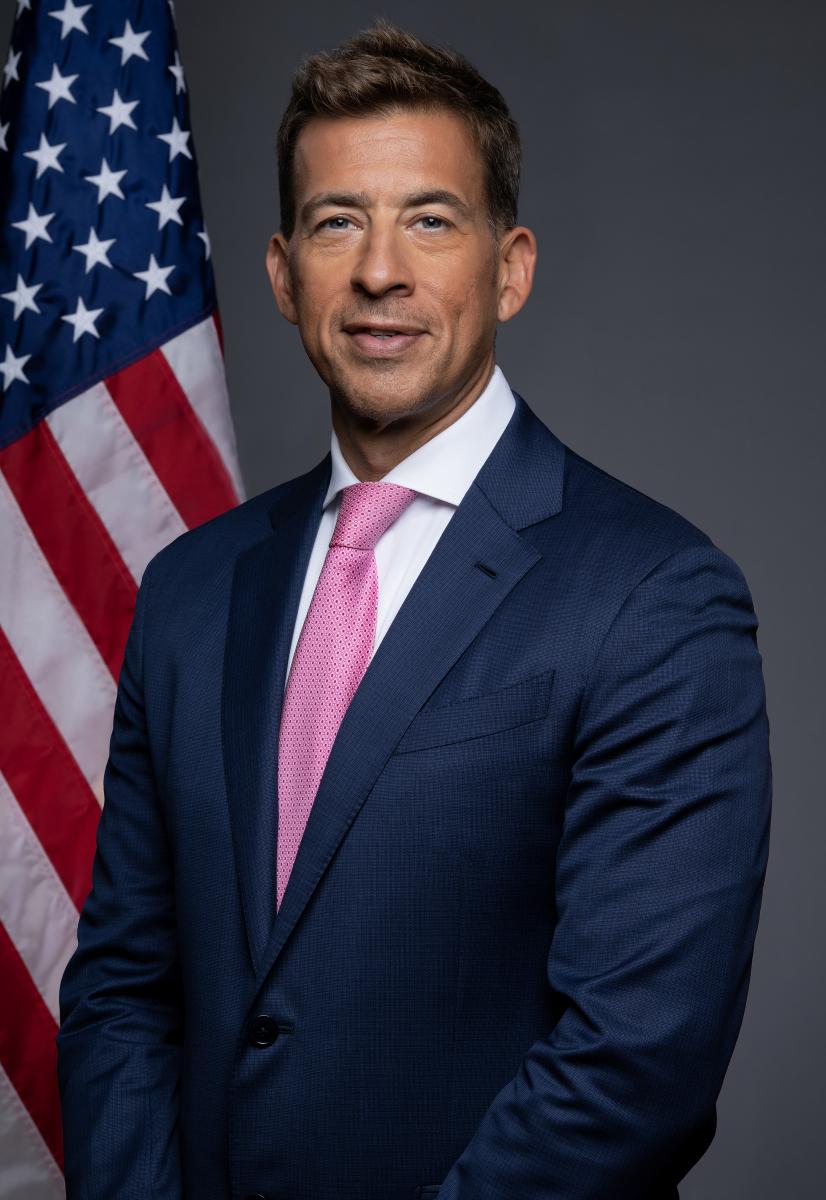 Alexi Giannoulias (Democrat) was sworn in as Illinois’ 38th Secretary of State in 2023.
Alexi Giannoulias (Democrat) was sworn in as Illinois’ 38th Secretary of State in 2023.
Overseeing the largest Secretary of State’s office in the nation with more than 4,000 employees and 25 departments, Giannoulias is committed to improving road safety, modernizing office operations and making programs and services more accessible for Illinois residents.
In his first official act, Giannoulias signed a sweeping Executive Ethics Order aimed at increasing transparency, enhancing protections for victims of sexual harassment or threats of violence, and simplifying the public’s ability to report improprieties to the Inspector General’s office.
Giannoulias launched an ongoing effort to transform and modernize the office’s outdated and aging technology, making it more secure and efficient and enabling Illinoisans to obtain more services online, replacing the need to visit a DMV. Customer experience has been improved by eliminating the “Time Tax,” or the amount of time that Illinoisans spend waiting in lines or filling out forms to obtain simple, but essential, government services.
He implemented his “Skip-the-Line” program, allowing Illinoisans to make appointments at the state’s busiest DMV facilities, which has reduced wait times, and crossed-trained employees to increase efficiencies. To accommodate more on-demand requests for services, the office has deployed more mobile units, created “pop-up” DMVs and established multiple Senior Centers at no cost to the office, specifically designed to assist senior drivers.
Pursuing an ambitious legislative agenda, Giannoulias has spearheaded initiatives to combat distracted driving, safeguard women’s healthcare access, protect drivers from discriminatory traffic stops, and provide funding resources to law enforcement to prevent car thefts.
As State Librarian, Giannoulias is dedicated to protecting and enhancing public libraries to make learning resources more available. In his first year in office, he championed first-in-the-nation Right-to-Read legislation and increased library grant opportunities.
In 2006, Giannoulias was elected Illinois State Treasurer, becoming the youngest State Treasurer in the nation at age 30. Giannoulias pursued a reform agenda that focused on innovative initiatives and policies to curb ethical abuses, create jobs, safely invest taxpayer dollars and improve the financial futures of residents.
Giannoulias ended pay-to-play politics in the Treasurer’s office by prohibiting contributions from contractors, banks and office employees. He also helped Illinois-based suit maker Hartmarx avoid liquidation, saving 1,000 jobs by threatening to pull state funds from the factory’s bank after it received TARP funds, arguing that it had a responsibility to invest in American workers.
Unlike other states, Illinois weathered the 2008 financial market meltdown due to the Treasurer’s investment strategy and legislation that saved the state $16 billion by paying down its pension obligation. He also helped pass a bill that banned the unscrupulous practices and hidden fees of debt settlement companies.
After leaving the Treasurer’s office in 2011, Giannoulias was appointed to serve as chairman of the Illinois Community College System, overseeing the state’s 48 community colleges. He also served as senior director at BNY Mellon Wealth Management and taught at Northwestern University as an adjunct professor.
Giannoulias served on the Board of Directors of CARA, One Million Degrees, the Chicago Children’s Advocacy Center and Chicago Public Library. He also was the CEO and founder of Annoula Ventures, which has invested in real estate and start-ups, including many Illinois-based companies.
Giannoulias earned an economics degree from Boston University and earned a law degree from Tulane University’s School of Law before playing professional basketball in Greece for Panionios for two years. He lives in Chicago with his wife and four daughters.
Senator Dick Durbin
 Senator Dick Durbin, a Democrat from Springfield, is the 47th U.S. Senator from the State of Illinois, the state’s senior senator, and the convener of Illinois’ bipartisan congressional delegation.
Senator Dick Durbin, a Democrat from Springfield, is the 47th U.S. Senator from the State of Illinois, the state’s senior senator, and the convener of Illinois’ bipartisan congressional delegation.
Durbin also serves as the Senate Majority Whip, the second highest ranking position among the Senate Democrats. Senator Durbin has been elected to this leadership post by his Democratic colleagues every two years since 2005.
Durbin serves as Chair of the Senate Judiciary Committee and sits on the Appropriations and Agriculture Committees.
Elected to the U.S. Senate on November 5, 1996, and re-elected in 2002, 2008, 2014, and 2020, Durbin fills the seat left vacant by the retirement of his long-time friend and mentor, U.S. Senator Paul Simon.
Senator Durbin makes approximately 50 round trips a year between Washington and Illinois. He is married to Loretta Schaefer Durbin. Their family consists of three children--Christine (deceased), Paul, and Jennifer--as well as six grandchildren. They reside in Springfield.
Raphel Jackson
Raphel Jackson. 26.5 years incarcerated, alumnus of the Education Justice Project. College Graduate (NEIU), Pathways Innovative Fellow, Community Evaluation Innovation Lab member. Currently obtaining a Masters Degree in Measurement, Evaluation, Statistics, and Assessments (MESA) through UIC. Program Manager for a higher education in prison program, the Prison Neighborhood + Arts Project (PNAP).
Otilio Rosas
Otilio Rosas is an EJP alumnus currently residing in Central Illinois’ Quad Cities. He is employed as an Electrician/Mechanic Technician, at a major International Food Service Provider. He continues to pursue a Degree in Managerial Accounting.
Marcelo de Jesus Velazquez
Marcelo de Jesus Velazquz is an alumnus of the Education Justice Project (EJP) of the University of Illinois Urbana-Champaign. He is a Public Policy enthusiast who is currently employed as a Public Policy Manager at the Illinois Legislative Latino Caucus Foundation. In spite of spending two-plus decades incarcerated and experiencing traumatic experience after traumatic experience, he took full advantage of access to higher education in prison programming, and now uses his knowledge to make a difference in his community on Smart Public Policy Idea at a time.

